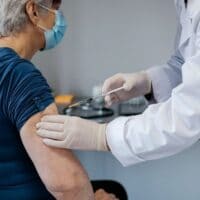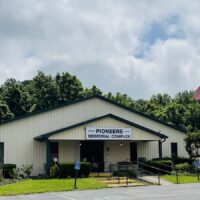On Friday, there wasn’t a single intensive care bed available in Christian County or at hospitals located in 10 surrounding counties, according to data provided by the state Department of Public Health.
Our region — which also includes Daviess, Hancock, Henderson, Hopkins, McLean, Muhlenberg, Ohio, Todd, Union and Webster counties — was among two of the state’s 10 regions at capacity for its ICUs as the delta variant continues to surge across the commonwealth. Six other regions were at more than 90% capacity for ICU beds.
Although capacity fluctuates with staffing levels, over the last year, Jennie Stuart’s ICU capacity has ranged anywhere from 11 to 15 beds, according to data from the U.S. Department of Health & Human Services.
In Christian County’s region on Friday, 61% of ventilators were in use — more than any other region in the state.
In recent weeks, as hospitals across Kentucky and in surrounding states fill up, Jennie Stuart has struggled to find alternative locations to transfer patients, regardless of COVID status.
Local emergency room physician Dr. Shea Godwin recently told WKDZ that, on one occasion in August, the hospital contacted 41 other facilities looking for somewhere that was able to admit the patient — but not a single one was able to. Godwin noted she’d experienced several other similar situations recently while working in the emergency room at Jennie Stuart and Trigg County Hospital.
National Guard, FEMA providing support
In an effort to support overwhelmed hospitals, more than 100 Kentucky National Guardsmen have been deployed. On Friday, they were at St. Claire Regional Medical Center in Morehead, Appalachian Regional Healthcare in Hazard, The Medical Center at Bowling Green and Pikeville Medical Center, according to the governor’s office.
“These men and women are serving in various general, non-clinical and non-administrative capacities throughout our facility,” The Medical Center at Bowling Green leadership team said in a statement. “Their assistance and service is much appreciated and will offer relief to our staff. We are so very grateful.”
Three Federal Emergency Management Agency “strike teams” also were providing support. They are positioned regionally, in Somerset, Prestonsburg and Louisville — centrally located so they can respond to any area in the state.
Treating COVID patients at Jennie Stuart
On Friday morning, there were 30 COVID patients hospitalized at Jennie Stuart, spokeswoman Jayme Tubbs told Hoptown Chronicle. It’s a 400% increase since Aug. 1 — a period of time that has seen the steepest increase since the pandemic began.
And that’s just COVID-19 patients who end up being admitted to the Hopkinsville hospital — not all of those who receive treatment for the virus.
Jennie Stuart, whose health care workers have been battling the pandemic for more than a year and a half, also had 3,179 visits to its emergency department during the month of August. To date, it’s the highest volume of the year, hospital spokesman Chris Jung told Hoptown Chronicle.
“Of those patients, we admitted 413 and performed COVID-related testing for 632,” Jung said.
When COVID patients are discharged from the hospital’s emergency department, care instructions include (but aren’t limited to) drinking plenty of fluids, working to control any fever and getting plenty of rest, according to Jung, who added “our providers at Jennie Stuart do not prescribe or recommend ivermectin as a treatment for COVID.”
The hospital does administer monoclonal antibody treatments (casirivimab and imdevimab) — but not in the emergency department. The infusions instead are offered only as outpatient therapy at Jennie Stuart’s Ambulatory Treatment Center, which is located on the hospital’s main campus, according to Jung. Patients have to meet specific criteria and the treatment can be ordered through a patient’s primary care provider and, in some instances, emergency room doctors.
Gov. Andy Beshear said on Friday that he will soon submit a resource request to FEMA seeking two monoclonal antibody injection teams to administer the antibodies subcutaneously (applied under the skin, rather than through an infusion) to Kentuckians infected with the virus.
Vast majority of hospitalized patients unvaccinated
Hospital leaders, including those at Jennie Stuart, are urging members of the public to get vaccinated against COVID-19. The vast majority of virus hospitalizations are among the unvaccinated, they’ve said.
On Wednesday, Jennie Stuart released an infographic illustrating the share of vaccinated vs. unvaccinated patients hospitalized with COVID-19, as well as those who end up in the ICU and on ventilators.
Of the 103 COVID patients hospitalized during the month of August, just nine were vaccinated.
Just one of 24 patients treated in the ICU over the same period was vaccinated against the virus and none of the individuals who’d been hooked up to a ventilator were vaccinated.
(Correction: Sept. 4, 2021 – An earlier version of this article misstated the location where monoclonal antibody treatments are administered. They are given at Jennie Stuart’s Ambulatory Treatment Center, which is located on the hospital’s main campus.)
Julia Hunter is the engagement editor for Hoptown Chronicle. Reach her at julia@hoptownchronicle.org.





